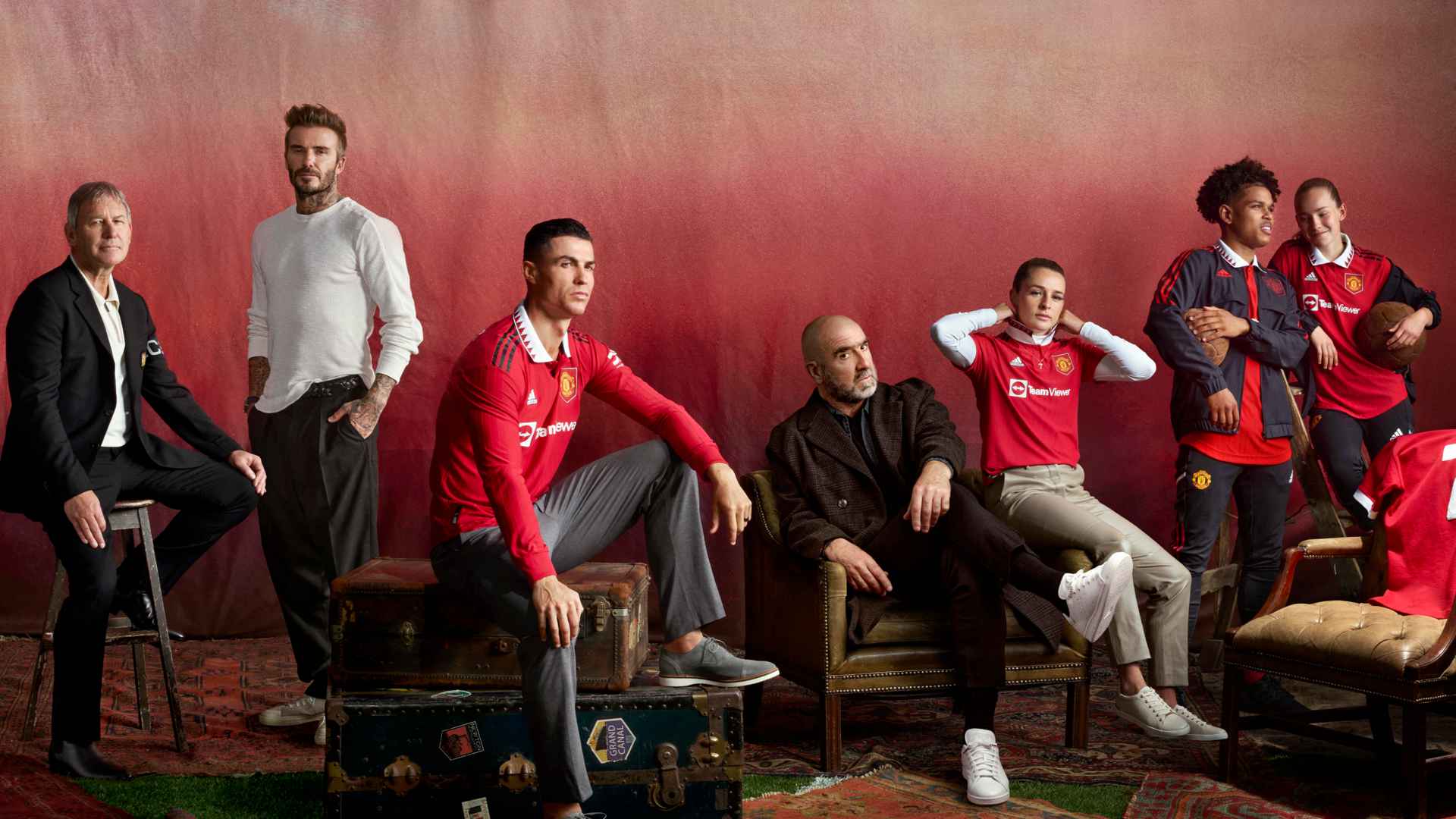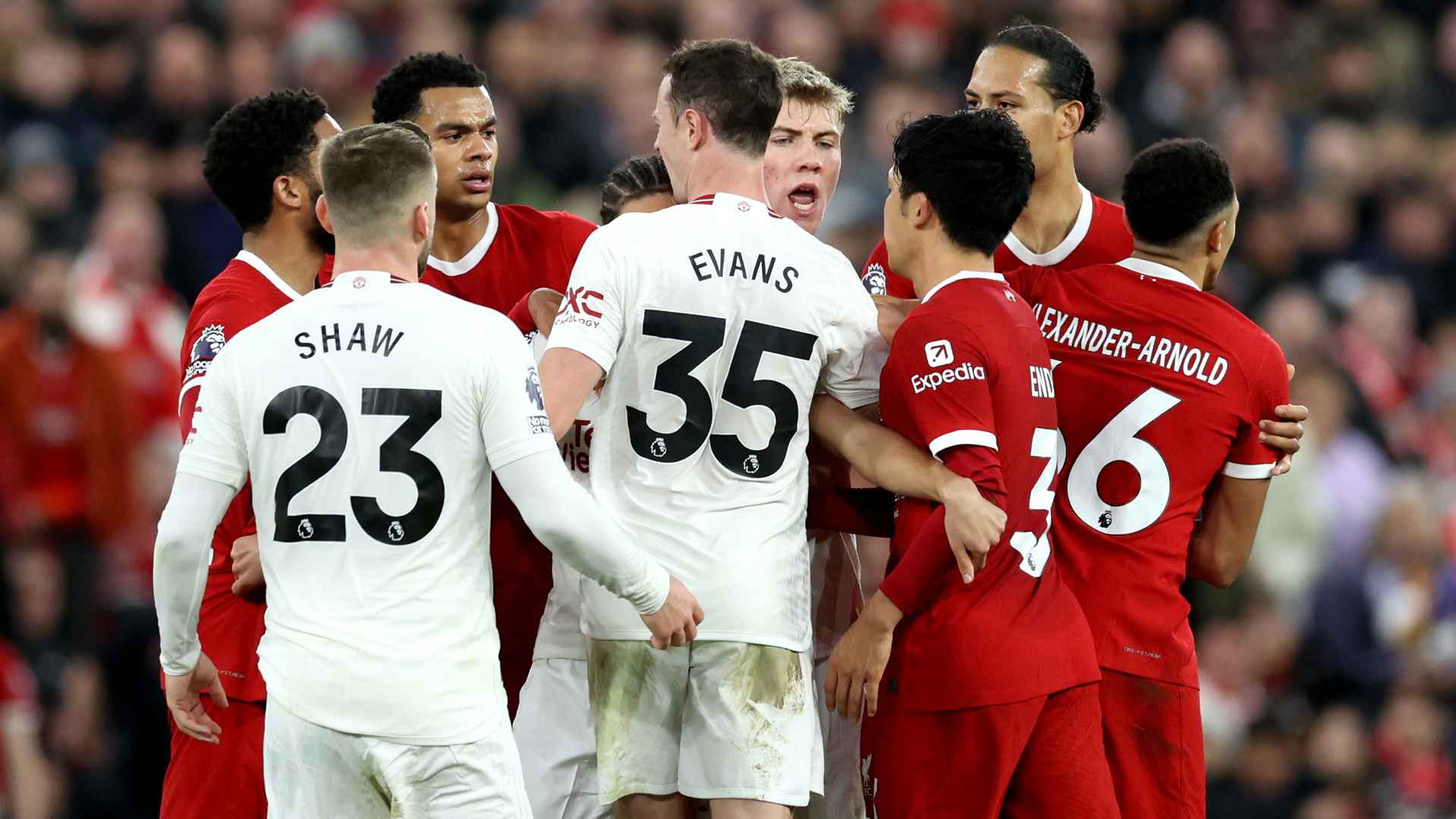90s Manchester United players represent a golden era in football history. This period saw the rise of iconic figures like the “Class of ’92,” transforming a talented youth squad into a global powerhouse under the shrewd management of Sir Alex Ferguson. Their dominance wasn’t solely built on homegrown talent; strategic signings of key international players further fueled their success, revolutionizing the club’s tactical approach and cultural identity.
The resulting legacy continues to inspire players and fans alike.
From the breathtaking skill of Ryan Giggs to the commanding presence of Eric Cantona, this era witnessed a unique blend of youth exuberance and seasoned experience. Their relentless pursuit of victory, coupled with captivating attacking football, captivated audiences worldwide and established Manchester United as a force to be reckoned with, setting the stage for future Premier League dominance. This article delves into the key players, tactical innovations, and enduring impact of this remarkable team.
Manchester United’s Glory Years: The 1990s: 90s Manchester United Players
The 1990s represent a golden era for Manchester United, a period defined by unprecedented success, a captivating blend of youth and experience, and the emergence of a team that would leave an indelible mark on the history of the Premier League and football as a whole. This period saw the club dominate English football, winning multiple league titles and establishing a global fanbase.
The “Class of ’92”: The Core Players, 90s manchester united players
The foundation of Manchester United’s success in the 90s was undoubtedly the “Class of ’92,” a group of young players who rose through the club’s youth academy to become integral parts of the first team. This group, including David Beckham, Ryan Giggs, Paul Scholes, Gary Neville, and Phil Neville, exemplified the club’s commitment to youth development and created a unique team dynamic.
Beckham’s pinpoint crosses and dead-ball expertise became legendary. Giggs’ electrifying pace and dribbling skills made him a constant threat down the wing. Scholes’ midfield mastery, characterized by his vision, passing accuracy, and powerful shooting, was pivotal in controlling the tempo of games. The Neville brothers, Gary and Phil, provided unwavering defensive solidity and leadership, embodying the club’s fighting spirit.
Sir Alex Ferguson’s leadership style, a blend of demanding authority and shrewd man-management, contrasted with the more naturally collaborative approach of the Class of ’92. While Ferguson instilled discipline and a winning mentality, the Class of ’92 brought a youthful exuberance and a strong team cohesion forged through years of playing together. This combination proved remarkably effective.
The success of the Class of ’92 highlighted the transformative impact of Manchester United’s youth academy. It demonstrated that nurturing homegrown talent could be the cornerstone of sustained success, a model that many clubs have attempted to emulate since.
| Player | Position | Years at Manchester United |
|---|---|---|
| David Beckham | Right Midfielder/Right Back | 1992-2003 |
| Ryan Giggs | Left Winger/Midfielder | 1990-2014 |
| Paul Scholes | Central Midfielder | 1994-2011 |
| Gary Neville | Right Back | 1992-2011 |
| Phil Neville | Midfielder/Defender | 1994-2005 |
Key Foreign Signings and their Impact
The influx of key foreign players significantly enhanced Manchester United’s squad depth and tactical flexibility. These players brought diverse playing styles and international experience, adding another layer to the team’s already impressive capabilities.
Eric Cantona’s arrival was transformative. His charisma, leadership, and unique playing style instantly elevated the team’s confidence and attacking prowess. Roy Keane’s combative midfield presence, unwavering commitment, and exceptional leadership skills complemented the existing talent, adding a new dimension to the team’s dynamic. Their impact extended beyond the pitch, influencing the club’s cultural identity.
Tactically, these foreign signings allowed for greater flexibility in formation and playing style. Cantona’s presence often led to a more fluid, attacking approach, while Keane’s strength and leadership solidified the midfield.
- Eric Cantona: Transformed the team’s attacking flair and provided inspirational leadership.
- Roy Keane: Brought unparalleled midfield dominance, leadership, and a combative style.
- Peter Schmeichel: Provided legendary goalkeeping consistency and commanding presence.
- Jaap Stam: Added defensive strength and tactical awareness.
- Dwight Yorke: Formed a prolific partnership with Andy Cole, contributing significantly to the team’s goalscoring.
Tactical Approaches and Evolution
Sir Alex Ferguson’s tactical flexibility was a hallmark of Manchester United’s success in the 90s. He adapted his formations and strategies based on the opposition and the strengths of his players. Early in the decade, a more traditional 4-4-2 was employed, but this evolved throughout the decade to incorporate various formations, depending on the situation.
For example, the 1999 Champions League final victory against Bayern Munich saw a tactical shift in the closing stages, demonstrating Ferguson’s ability to adapt his strategy mid-game. The use of a 4-3-3 formation was a significant evolution, accommodating the team’s growing attacking potential.
Compared to rivals like Arsenal, known for their intricate passing game under Arsene Wenger, and Liverpool, who often employed a more direct style, Manchester United possessed a more pragmatic approach, blending defensive solidity with potent attacking capabilities. This flexibility allowed them to adapt to various opponents and game situations.
| Formation | Opponent | Result |
|---|---|---|
| 4-4-2 | Liverpool | Win |
| 4-3-3 | Arsenal | Draw |
| 4-4-2 | Bayern Munich (Champions League Final) | Win |
| 3-5-2 | Tottenham Hotspur | Win |
The Team’s Dominance and Rivalries
Manchester United’s dominance in the 90s is undeniable. The team won multiple Premier League titles, FA Cups, and culminated in the historic treble of the Premier League, FA Cup, and UEFA Champions League in 1999. Key moments, such as Cantona’s crucial goals, Keane’s midfield battles, and Beckham’s set-piece prowess, defined this era.
The main rivals during this period were Arsenal and Liverpool, both fierce competitors with rich histories. The matches against these teams were always high-stakes affairs, filled with tension, drama, and often defining the league title race. Specific matches, such as the tightly contested encounters against Arsenal and Liverpool, are etched in the memory of United fans.
Discover how crystal palace vs manchester united has transformed methods in this topic.
Legacy and Lasting Influence

The 90s Manchester United team’s legacy extends far beyond their on-field achievements. Their impact on the Premier League’s global popularity and the development of young talent is undeniable. The “Class of ’92” became role models for aspiring footballers, demonstrating the potential for success through hard work and dedication within a club’s youth system.
The cultural legacy of this era is significant, extending beyond football itself. The team’s success helped define a generation’s sporting identity, fostering a sense of community and pride among Manchester United supporters worldwide. Their impact on football’s style and tactics continues to be felt today.
- Ryan Giggs’ longevity and adaptability influenced the development of versatile wingers.
- Paul Scholes’ technical brilliance and midfield control remain a benchmark for central midfielders.
- Eric Cantona’s charisma and influence on team morale continue to be studied in leadership contexts.
- Sir Alex Ferguson’s managerial strategies and man-management techniques are still analyzed and emulated.
- David Beckham’s global appeal and marketing influence revolutionized the image of professional footballers.
The 90s Manchester United team remains a benchmark for football excellence. Their achievements transcended mere trophies; they redefined the club’s identity, shaped Premier League dynamics, and left an indelible mark on the global game. The blend of homegrown talent, strategic signings, and tactical brilliance created a legacy that continues to resonate with fans and inspire future generations of players.
Their story is not just about winning; it’s a testament to teamwork, leadership, and the enduring power of a shared vision.



